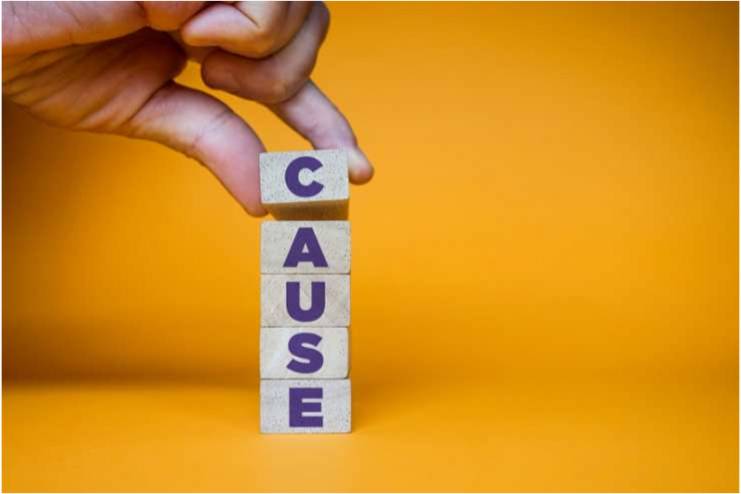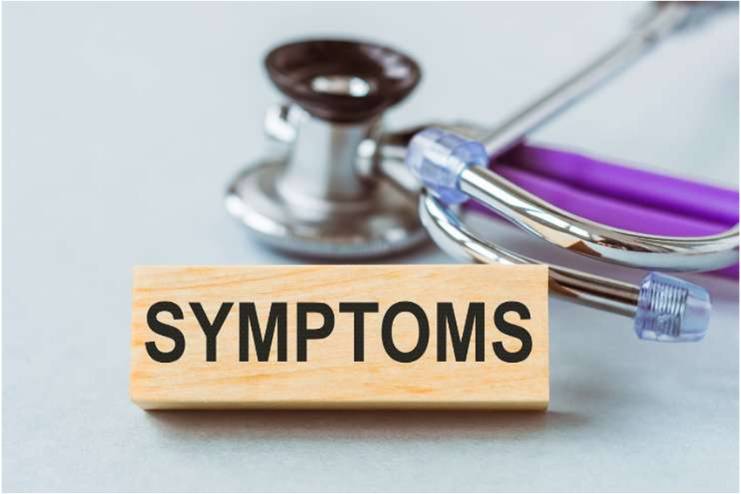Affiliate Disclaimer
Some links in this article are affiliate links. We may earn a small commission if you make a purchase through these links, at no extra cost to you. We only recommend products we find useful to our readersThe disorder known as insulin resistance occurs when the body’s cells lose their sensitivity to the hormone insulin, which controls blood sugar levels. If ignored, this process disturbs metabolic health and eventually results in elevated blood sugar and type 2 diabetes.
More than one-third of American adults frequently struggle with this silent pandemic without ever realizing it. Obesity and cardiovascular disease are among the health problems that might arise as insulin resistance worsens. Recognizing this critical metabolic malfunction is the first step toward recovering health and energy in an increasingly insulin-resistant environment.
What Is Insulin Resistance?
Insulin resistance occurs when the body’s cells—primarily those in the liver, muscle, and fat—become less sensitive to insulin, the hormone responsible for facilitating glucose uptake from the bloodstream. When cells resist insulin signals, the pancreas compensates by producing more insulin, leading to elevated insulin levels. Over time, this imbalance can disrupt the body’s metabolism.
As a result, glucose remains in the bloodstream rather than being utilized for energy, leading to increased blood sugar levels. It creates a vicious cycle: higher insulin levels push the body toward fat storage, contributing to weight gain and further exacerbating insulin resistance. The condition not only heightens the risk of type 2 diabetes but also links to metabolic syndrome, highlighting the urgency of addressing insulin sensitivity as a cornerstone of overall health. Understanding this metabolic dysfunction is essential for taking proactive steps toward better health and longevity.
Read More: How to Reverse and Prevent Insulin Resistance with Simple Lifestyle Changes
Causes of Insulin Resistance

Although sugar intake is frequently responsible for insulin resistance, the truth is more nuanced. There is still much for scientists to learn about the precise process by which insulin resistance arises. So far, researchers have found multiple genes that increase or decrease an individual’s risk of developing insulin resistance.
Additionally, insulin resistance is more common among older people. A diet heavy in sugar is a significant factor, but several other elements are also involved.
Several illnesses and circumstances can cause insulin resistance to different degrees. However, two factors, inactivity and extra body fat, particularly around the abdomen, are thought to be primarily responsible.
Why? Although the exact cause is unknown, some researchers speculate that excess fat tissue could lead to physiological stress, inflammation, or other cell-related alterations that worsen insulin resistance.
Read More: How Insulin Resistance Impacts Your Heart Health
Insulin Resistance Symptoms: The Silent Signals Your Body Sends

Due to its minimal symptoms and potential misinterpretation for other diseases, insulin resistance frequently goes undiagnosed. Typically, insulin resistance is asymptomatic until diabetes manifests. Your body can, however, be quietly alerting you to a problem. Additionally, there are connections between insulin resistance and other health problems:
- Acanthosis nigricans: Insulin-resistant Individuals may get this skin ailment. The back of the neck, the armpits, and the groin develop thick, velvety patches. Increased pigmentation may result in darker skin depending on the individual’s skin tone.
- Polycystic ovary syndrome (PCOS): Insulin resistance and polycystic ovarian syndrome (PCOS) have been related, according to reliable sources. Infertility, painful periods, and irregular menstrual cycles are some of the signs and symptoms of PCOS.
- Fatigue: Another vital sign is weariness, which goes unexplained. You can have low energy levels even when you get enough sleep because your cells aren’t absorbing glucose as well as they should.
Long-term Health Risks of Insulin Resistance: What’s at Stake?

Untreated insulin resistance can lead to several severe health issues:
- Type 2 Diabetes: Insulin resistance develops when cells become less receptive to insulin, which helps glucose enter cells for energy. The pancreas produces more insulin to maintain normal blood sugar levels. Overproduction wears down the pancreas, making it less effective in secreting insulin. As insulin supply decreases and cells resist insulin, blood sugar rises, causing Type 2 diabetes.
- Heart Disease: Insulin resistance dramatically increases cardiovascular disease risk. Elevated blood sugar harms blood vessels, resulting in hypertension, heart disease, and stroke. Chronic inflammation, a consequence of insulin resistance, further increases this risk.
- Cancer: Insulin resistance increases fat cell production and prevents fat cell breakdown. The weight gain, inflammation, and hormone disturbances increase your chance of 13 cancers. Insulin boosts cell growth and lowers mortality regardless of weight, which increases the risk of cancer and other problems. Long-term insulin use increases the risk of breast, prostate, and colorectal cancer.
- Depression: Researchers at Stanford Medicine have connected an elevated risk of major depressive disorder development to insulin resistance. Even if you’ve never experienced depression before, your chance of having a major depressive disorder is doubled if you’re insulin-resistant, according to Natalie Rasgon, MD, PhD, a professor of psychiatry and behavioral sciences.
- Alzheimer’s: Insulin resistance, sometimes known as “Type 3 diabetes,” and Alzheimer’s disease are two conditions that are increasingly linked. Because insulin is necessary for brain function, developing insulin resistance can lead to cognitive loss and an increased risk of Alzheimer’s disease.
According to studies, eating healthily, staying active, and maintaining a healthy weight reduces the risk of those three malignancies.
Read More: The Connection between Insulin Resistance and Type 2 Diabetes
The Diet Debate: What Foods Trigger and Combat Insulin Resistance?

Diet is essential for controlling insulin resistance but goes beyond simply reducing carbs. Many people do not get enough nutrients: fiber, potassium, calcium, magnesium, and all the other elements necessary for controlling blood sugar levels. As a result, individuals with insulin resistance must consume a diet high in foods high in essential nutrients.
- The Mediterranean diet centers around seasonal fruits, vegetables, whole grains, legumes, and nuts. Olive oil serves as a primary fat source. The diet includes a moderate amount of dairy, poultry, and eggs while emphasizing fresh seafood. It moderates red wine during meals, but people consume red meat sparingly. This diet promotes health by prioritizing plant foods and limiting the intake of animal products.
- Conversely, highly processed foods, sweetened beverages, and refined carbohydrates might exacerbate insulin resistance by increasing inflammation and blood sugar.
- Instead of following strict diet guidelines, focus on including foods that are good for your insulin levels, such as nuts, seeds, fatty fish, and vibrant greens, in your meals.
Read More: How Lifestyle Choices Affect Insulin Sensitivity
Exercise and Insulin Resistance: Why Moving Your Body Matters

Sedentary lifestyles are more likely to lead to the development of insulin resistance, but the good news is that activity is the best way to reverse insulin resistance. However, not all workouts are created equal.
- HIIT: According to research, High-Intensity Interval Training (HIIT) can be a game-changer. This workout involves short, intense bursts of activity that enhance insulin sensitivity by stimulating muscles to absorb glucose rapidly.
- Strength Training: On the other hand, strength training helps to grow lean muscle mass, which allows for a more efficient burning of glucose even while the body is at rest.
- Yoga: Yoga offers a surprising choice for individuals seeking a sense of equilibrium. Its emphasis on stress reduction and flexibility significantly lowers cortisol levels, improving insulin sensitivity.
Conclusion
Insulin resistance does not have to be the determining factor in your destiny. Because it does not manifest any symptoms until it develops into prediabetes or type 2 diabetes, the most effective course of action is to make an effort to prevent and treat insulin resistance by ensuring that you maintain a healthy weight, engage in regular physical activity, and consume a balanced diet. You can take control and reverse insulin resistance with knowledge and by adjusting your lifestyle.
References
- https://www.niddk.nih.gov/health-information/diabetes/overview/what-is-diabetes/prediabetes-insulin-resistance
- https://www.ncbi.nlm.nih.gov/books/NBK507839/
- https://my.clevelandclinic.org/health/diseases/22206-insulin-resistance
- https://www.webmd.com/diabetes/insulin-resistance-syndrome
- https://emedicine.medscape.com/article/122501-overview?form=fpf
- https://www.cdc.gov/diabetes/about/insulin-resistance-type-2-diabetes.html
- https://www.medicalnewstoday.com/articles/305567#what-is-it
- https://www.medicalnewstoday.com/articles/305567#symptoms
- https://diabetes.org/health-wellness/insulin-resistance
- https://pubmed.ncbi.nlm.nih.gov/34551583/
- https://www.scirp.org/journal/paperinformation?paperid=121883
- https://www.ncbi.nlm.nih.gov/pmc/articles/PMC9966425/
- https://www.webmd.com/alzheimers/alzheimers-diabetes-link
- https://www.mdpi.com/1718-7729/31/2/75
- https://medicine.yale.edu/news-article/cancer-and-obesity-the-link-is-insulin/
- https://med.stanford.edu/news/all-news/2021/09/insulin-resistance-major-depressive-disorder.html
- https://profiles.stanford.edu/natalie-rasgon
- https://www.mdanderson.org/cancerwise/sugar–insulin-resistance-and-cancer–what-is-the-link.h00-159461634.html
- https://www.webmd.com/diabetes/diabetes-insulin-resistance-diet
- https://www.medicalnewstoday.com/articles/316569#foods-to-eat
- https://www.medicalnewstoday.com/articles/316569#diet-tips
- https://www.ncbi.nlm.nih.gov/pmc/articles/PMC5569266/
- https://bmjopensem.bmj.com/content/2/1/e000143
- https://www.ncbi.nlm.nih.gov/books/NBK507839/
- https://www.rupahealth.com/post/sweat-it-out-the-powerful-connection-between-exercise-and-insulin-sensitivity
- https://www.cdc.gov/diabetes/risk-factors/pcos-polycystic-ovary-syndrome.html?CDC_AAref_Val=https://www.cdc.gov/diabetes/basics/pcos.html
- https://diabetesjournals.org/diabetes/article/61/4/778/15927/Insulin-Resistance-and-Type-2-Diabetes
- https://dtc.ucsf.edu/types-of-diabetes/type2/understanding-type-2-diabetes/what-is-type-2-diabetes/
In this Article

















